Related Research Articles

Earl Cyril Palmer was an American drummer. Considered one of the inventors of rock and roll, he is a member of the Rock and Roll Hall of Fame.
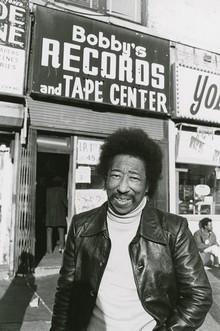
Morgan Clyde "Bobby" Robinson was an American independent record producer and songwriter in New York City, most active from the 1950s through the mid-1980s.

Elvis Country is the thirteenth studio album by American singer and musician Elvis Presley, released on RCA Records in January 1971. Recorded at RCA Studio B in Nashville, it reached number 12 on the Billboard 200. It peaked at number six in the United Kingdom, selling over one million copies worldwide. It was certified Gold on December 1, 1977, by the Recording Industry Association of America.
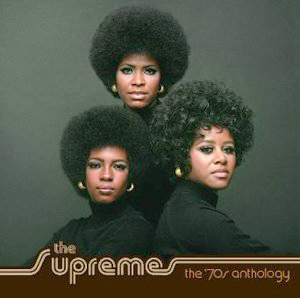
The '70s Anthology is a 2002 two compact disc set of many of the songs recorded by the 1970s groupings of The Supremes. The set features 42 tracks, of which 10 had never been released, and 6 were appearing in extended or unedited forms.

J. B. Lenoir was an American blues guitarist and singer-songwriter, active in the Chicago blues scene in the 1950s and 1960s.
Country USA was a 23-volume series issued by Time-Life Music during the late 1980s and early 1990s, spotlighting country music of the 1950s through early 1970s.
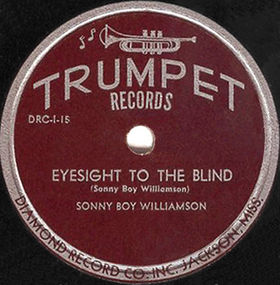
"Eyesight to the Blind" is a 12-bar blues song written and recorded in 1951 by Sonny Boy Williamson II. He also recorded the related songs "Born Blind", "Unseeing Eye", "Don't Lose Your Eye", and "Unseen Eye" during his career. The Larks, an American rhythm and blues group, recorded the song, which reached number five on the R&B charts in 1951. Several musicians subsequently recorded it in a variety of styles. The Who adapted Williamson's song for their rock opera Tommy.

WWII is a duet album by Waylon Jennings and Willie Nelson, released on RCA Victor in 1982.
The first season of the Theme Time Radio Hour, hosted by Bob Dylan, ran from May 3, 2006, to April 18, 2007 on XM Satellite Radio for a total of 50 shows.
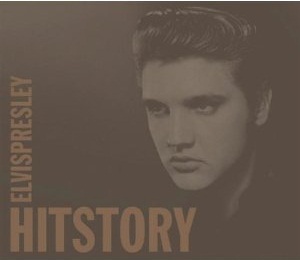
Hitstory is compilation album by American singer and musician Elvis Presley, which includes the two previous compilation album ELV1S and 2nd to None, in addition to a bonus disc, entitled The Story Continues. "My Way" in the European edition is an alternative 'live' 1977 version to the single. On March 8, 2018, the box set was certified Platinum by the RIAA for sales in excess of 1,000,000 units.
This is the complete discography of the fictional music group Alvin and the Chipmunks.
The third season of the Theme Time Radio Hour premiered on Wednesday, October 8, 2008, the same week that saw the release of a new edition of the Bootleg Series, Tell Tale Signs. Somewhat eerily, given that it aired during the week of a worldwide financial crisis caused by the collapse of the credit markets, the first show's theme was "Money: Part 1".
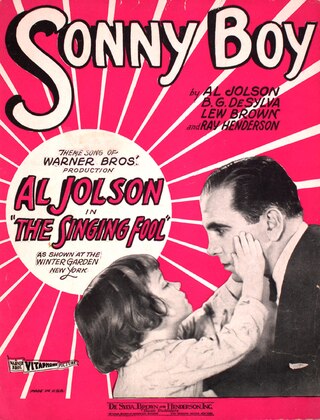
"Sonny Boy" is a song written by Ray Henderson, Buddy De Sylva, and Lew Brown. It was featured in the 1928 part-talkie The Singing Fool. Sung by Al Jolson, the 1928 recording was a hit and stayed at #1 for 12 weeks in the charts and was a million seller.
The following is a list of albums released with songs from or based on the animated series VeggieTales.
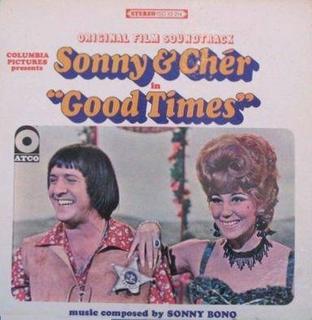
Good Times is the first soundtrack album by American pop duo Sonny & Cher, released in 1967 by Atlantic/Atco Records in conjunction with the film of the same name.

Henry Bernard Glover was an American songwriter, arranger, record producer and trumpet player. In the music industry of the time, Glover was one of the most successful and influential black executives. He gained eminence in the late 1940s, primarily working for the independent King label. His duties included operating as a producer, arranger, songwriter, engineer, trumpet player, talent scout, A&R man, studio constructor, while later in his career he became the owner of his own label. Glover worked with country, blues, R&B, pop, rock, and jazz musicians, and he helped King Records to become one of the largest independent labels of its time. Thanks to the efforts of family, friends and fans, Glover's hometown of Hot Springs, Arkansas celebrated the 100th anniversary of his birth in 2021 by inducting him into the downtown "Walk of Fame," the Mayor's "Proclamation," "Key to the City," and named a parklet "Henry Glover Way," along Black Broadway after him. In 2018, Glover was recognized with a Lifetime Achievement Award by the King Records 75th Anniversary. In 2013, he was inducted into the Blues Hall of Fame.
Henry Earl Sinks, known professionally as Earl Sinks, was an American rock and roll singer-songwriter and actor. Sinks had a successful musical and acting career from the 1950s to the 1990s before retiring. He was best known for his long music career, including his brief tenure as a member and occasional lead singer of the Crickets from 1958 to 1960, and for his acting roles in numerous low-budget movies and TV shows in the 60s.

The singles discography of American country artist, George Jones, contains 182 singles. Of the total, 136 were released with Jones as the solo artist. In addition, 31 were issued with Jones being part of a collaboration. Thirdly, eight singles were issued with Jones being part of a featured act. Fourthly, seven released were promotional singles. Additionally, 14 songs that are not released as singles are included that made any major chart. Finally, 21 music videos which were first issued as singles are also listed. Jones had his first chart success in 1955 with several top ten Billboard Hot Country Songs singles: "Why Baby Why", "What Am I Worth" and "You Gotta Be My Baby". After several more top ten releases, "White Lightning" became his first to top the Billboard country chart. Along with "Who Shot Sam", both singles were also his first to make the Hot 100 charts.

"You Need Love" is a song with lyrics written by American blues musician Willie Dixon. The instrumentation was recorded first by slide guitarist Earl Hooker and backing musicians, then Chicago blues artist Muddy Waters overdubbed vocals, and Chess Records released it as a single in 1962.
References
- ↑ Bruce Pollock, Rock Song Index: The 7500 Most Important Songs, 2014, 1135462968, p. 212. "Let Them Talk Artist: Little Willie John Written by: Sonny Thompson, Henry Glover Label: King Produced by: Henry Glover Year: 1959 Tortured soul from the original king of pain."
- ↑ LeRoy Clarke: Of Flesh and Salt and Wind and Current, 9769510602, p. 166, 2003 - "Let them talk if they want to, talk don't bother me... I want the whole wide world to know: I love you so...."